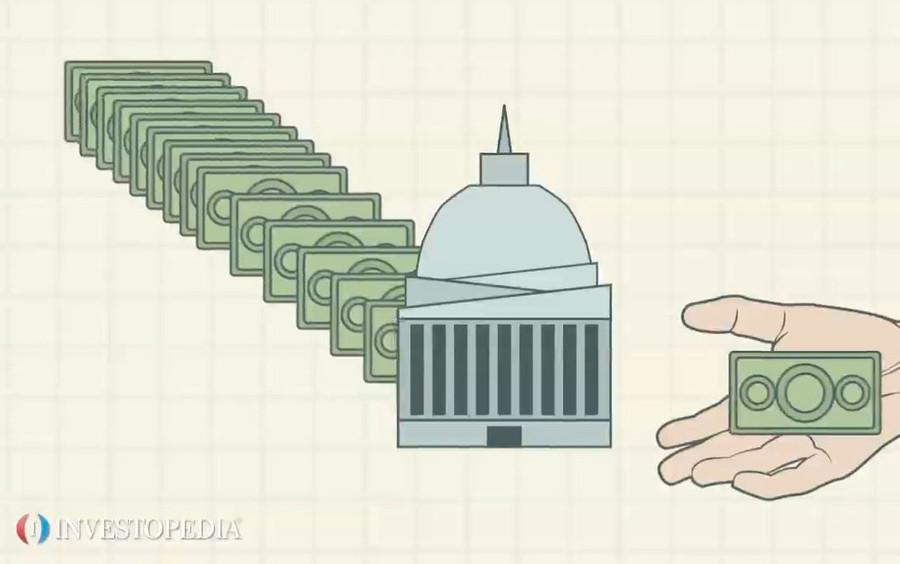Explore the World's Best Ideas
Join today and uncover 100+ curated journeys from 50+ topics. Unlock access to our mobile app with extensive features.
Adam Smith's The Wealth of Nations had a huge global impact
The Wealth of Nations described the industrialised capitalist system that overthrew the mercantilist system. Mercantilism stated that wealth was fixed and the only way to prosper was to hoard gold and tariff products from abroad.
The essence of Smith's thesis was that people's natural tendency for self-interest leads to prosperity. By giving people the freedom to produce and exchange goods and opening the markets to competition, people's natural self-interest would create greater wealth than with strict government regulations.
20
377 reads
The invisible hand
The central thesis of Smith's The Wealth of Nations is that people's individual need to fulfil self-interest results in societal benefit. This free-market force became known as the "invisible hand".
However, the market that emerged from an increasing division of labour created inter-dependencies and promoted social welfare through individual profit motives. For example, the baker only produced bread and relied on one person for clothes, another for meat, and yet another for beer. The people specialising in clothes depended on the baker for their bread, and so on.
22
284 reads
The invisible hand versus the government
The invisible hand is not actually a distinguishable entity but the sum of many phenomena that occur when consumers and producers engage in commerce.
- The invisible hand theorem suggests that the means of production and distribution should be privately owned and that trade will flourish organically without regulation.
- The government affects the invisible hand, not the other way around. It is prescriptive and intentional and pursues defined goals through coercion.
20
245 reads
Government response to the Invisible Hand
The lack of market mechanisms frustrates government planning. This is also known as the economic calculation problem.
When people and businesses make their own decisions based on their willingness to pay money for a good or service, the information is captured. In turn, resources are automatically allocated toward the most valued ends.
Governments' interference causes unwanted shortages and surpluses. However, the forces that guide voluntary economic activity toward the benefit of societies are the same forces that curb the effectiveness of government intervention.
20
199 reads
The elements of prosperity
Smith believed a nation needed three elements to bring about universal prosperity.
- Enlightened self-interest. He thought most people would naturally practice thrift, hard work, and enlightened self-interest.
- Limited government. Smith viewed the government's responsibilities as being limited to the defence of the nation, universal education, public works, the enforcement of legal rights and the punishment of crime.
- Solid currency and a free-market economy. Smith hoped backing the currency with hard metals would prevent the government from depreciating the currency.
21
199 reads
Smith's theories overthrow mercantilism
The Wealth of Nations is an influential book that started free-market economics but has some weaknesses. For example,
- it is lacking proper explanations for pricing or a theory of value
- Smith failed to notice the importance of the entrepreneur in breaking up inefficiencies and creating new markets
However, both opponents and beliers in Adam Smith's free-market capitalism have added to the framework. The theory gets stronger with each reformulation and continues to be a powerful force today.
19
197 reads
IDEAS CURATED BY
Maria Case's ideas are part of this journey:
Learn more about economics with this collection
How to prioritize tasks effectively
How to manage your time efficiently
How to reduce stress and anxiety
Related collections
Similar ideas
6 ideas
Adam Smith: The Father of Economics
investopedia.com
4 ideas
What if one nation achieves AI dominance? What are the implications for the rest of the world?
trajectorymatrix.substack.com
7 ideas
How Money Became the Measure of Everything
theatlantic.com
Read & Learn
20x Faster
without
deepstash
with
deepstash
with
deepstash
Personalized microlearning
—
100+ Learning Journeys
—
Access to 200,000+ ideas
—
Access to the mobile app
—
Unlimited idea saving
—
—
Unlimited history
—
—
Unlimited listening to ideas
—
—
Downloading & offline access
—
—
Supercharge your mind with one idea per day
Enter your email and spend 1 minute every day to learn something new.
I agree to receive email updates



